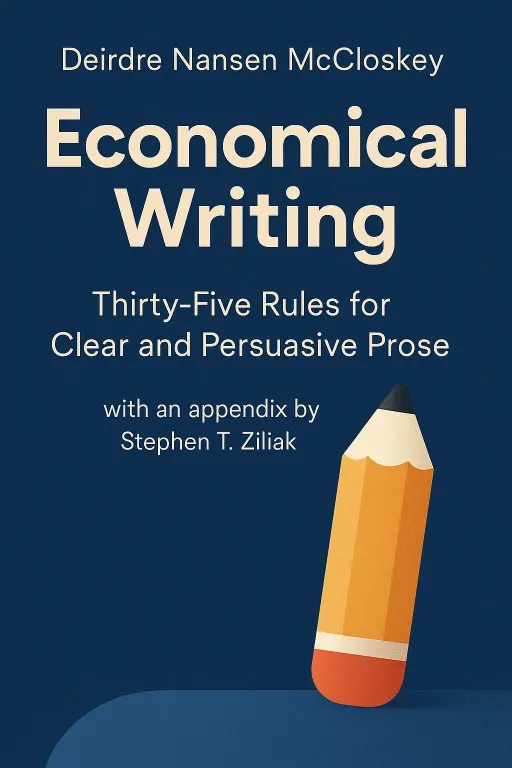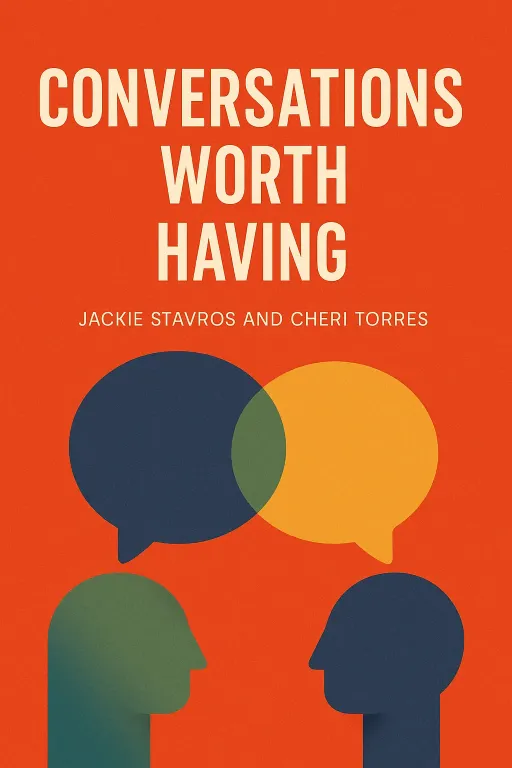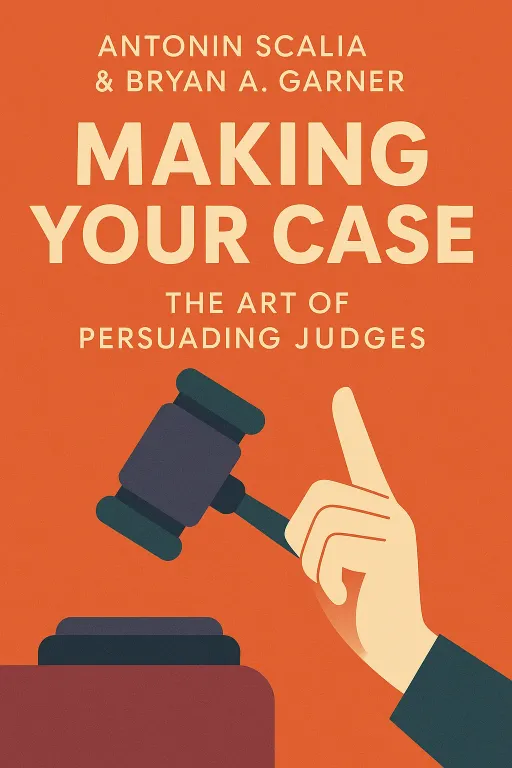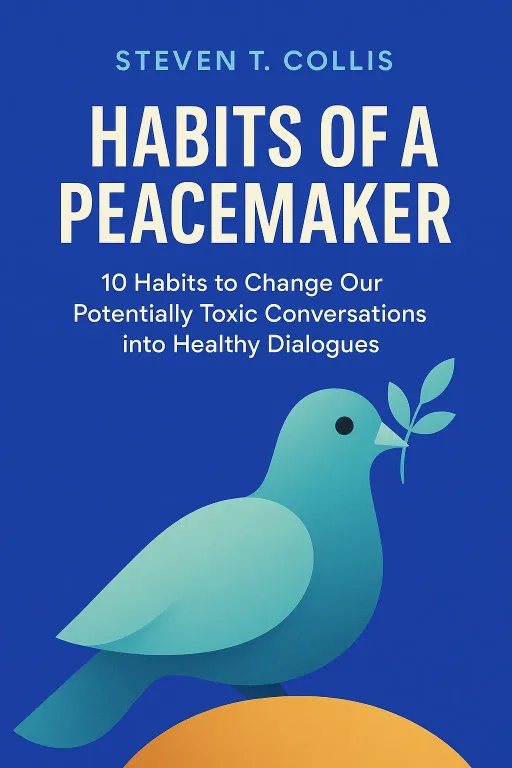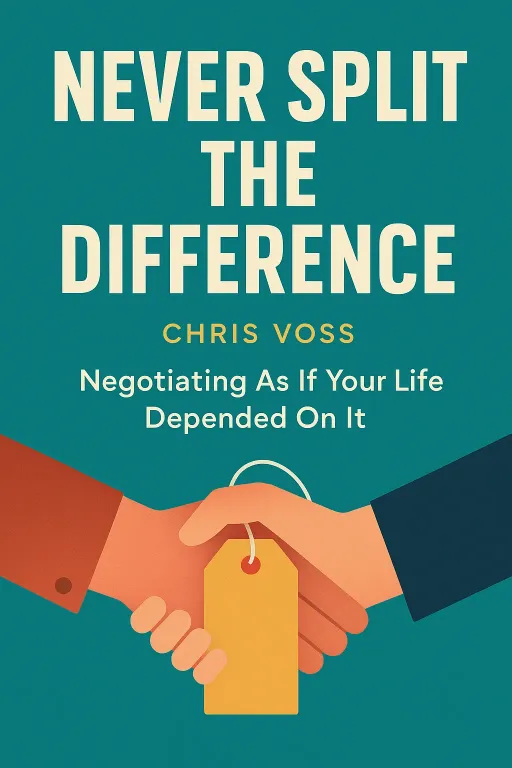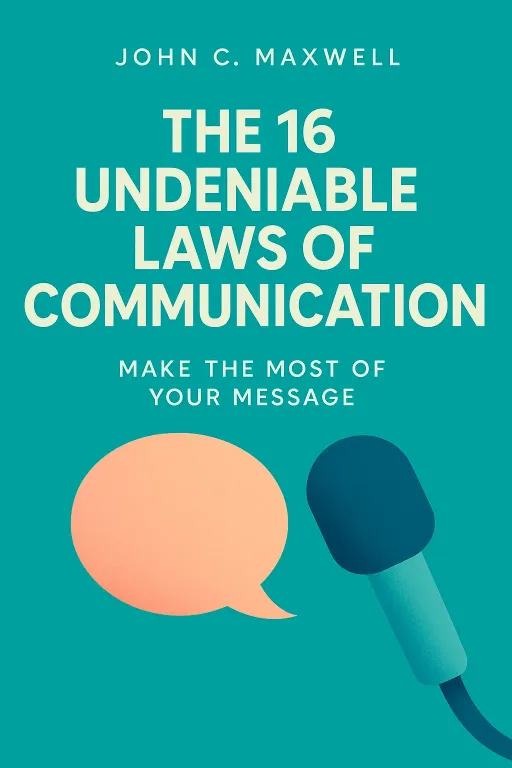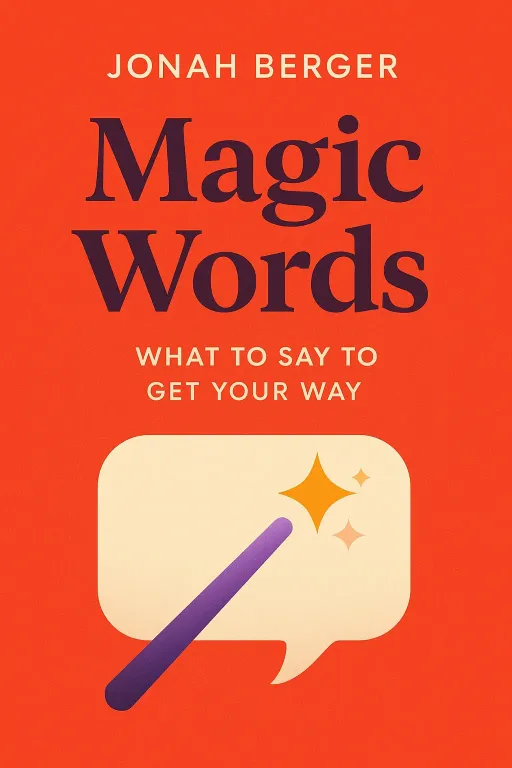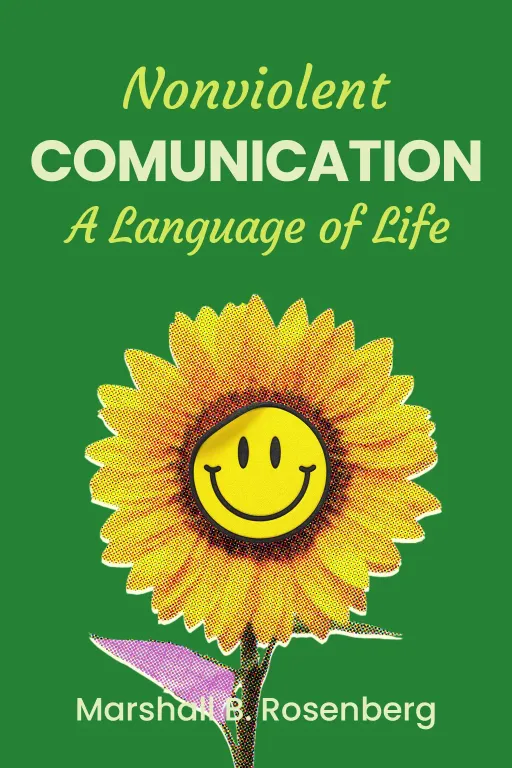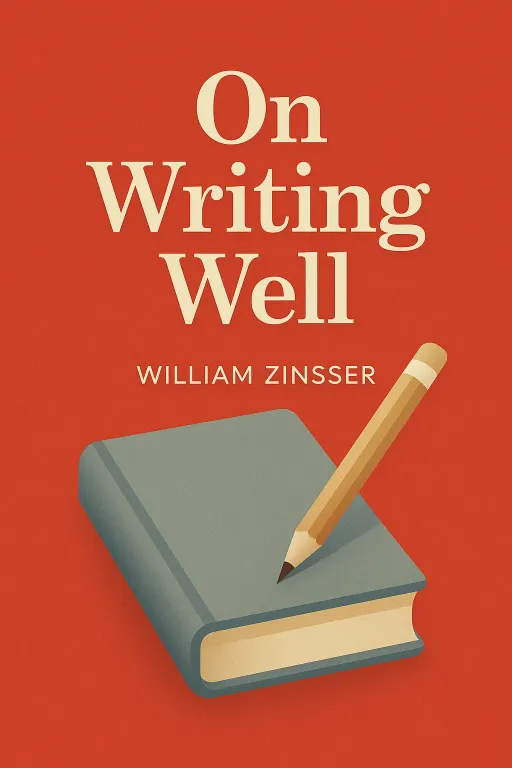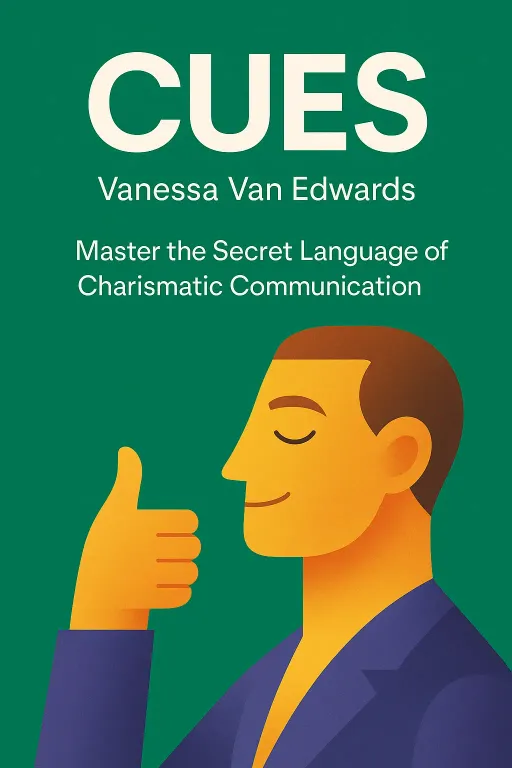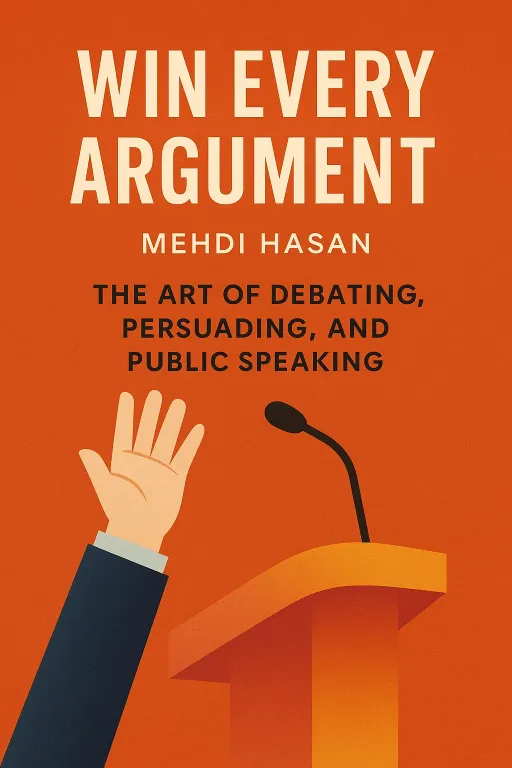
Debate is a Street Fight
11 minGolden Hook & Introduction
SECTION
Michelle: Everything you learned in high school debate club is wrong. Playing fair, sticking to the facts, never attacking the person? According to our book today, that’s a recipe for losing. Mark: Wait, really? So all that stuff about logical fallacies and being respectful is useless? I feel like my entire education was a lie. Michelle: Well, maybe not useless, but dangerously incomplete. The real art of argument, at least in the modern world, is dirtier, more emotional, and a lot more like a street fight. Mark: A street fight! I like that. What book is making this case? Michelle: It’s called Win Every Argument by Mehdi Hasan. And if you've ever seen him on TV, you know he's this incredibly sharp, famously combative British-American journalist. He's known for his incisive interviews where he just dismantles politicians with their own words. Mark: Right, he's the guy who does not let anyone off the hook. He’s relentless. So this book is basically his playbook. Michelle: Exactly. And it became a New York Times Bestseller because it's so unflinchingly practical. Hasan argues that in our current, let's call it 'post-truth' environment, the old rules of polite debate just don't cut it anymore. He starts with a core, almost unsettling idea: facts don't win arguments. Mark: Okay, that's a bold claim. If facts don't win, what does?
The Emotional Brain: Why Feelings Trump Facts
SECTION
Michelle: Feelings. Emotion. What the ancient Greeks called pathos. Hasan argues that winning an argument is less about appealing to someone's rational brain and more about connecting with their heart. Mark: That sounds a bit like manipulation, doesn't it? Are we just trying to trick people with emotion instead of using logic? Michelle: It’s a fine line, but Hasan provides a brutal, high-stakes example of what happens when you ignore emotion completely. Do you remember the 1988 US presidential debate? Mark: Vaguely. Who was it, Bush Sr.? Michelle: Yes, George H.W. Bush versus Michael Dukakis. Dukakis was the Democratic governor, and he was seen as a bit cold, a bit of a technocrat. During the debate, the moderator, Bernard Shaw, turned to him and asked one of the most savage questions in political history. Mark: Oh boy, what was it? Michelle: He said, "Governor, if Kitty Dukakis [his wife] were raped and murdered, would you favor an irrevocable death penalty for the killer?" Mark: Whoa. That is… intense. How do you even answer that? Michelle: Well, how Dukakis answered it arguably cost him the entire election. He didn't flinch. He didn't show a flicker of anger or grief. He just calmly, robotically, stated his long-held opposition to the death penalty and started talking about crime statistics in his state. He gave a purely logical, principled answer. Mark: Oh, I can just picture the cringe. He answered a question about his wife's hypothetical murder like he was filing a tax return. Michelle: Exactly. The audience was stunned. His poll numbers plummeted. People didn't see a principled leader; they saw a robot. He failed to connect on a human, emotional level. Hasan uses this to argue that you can have all the right facts and principles, but if you can't make the audience feel something, you've already lost. Mark: But isn't that a problem with us, the audience? He was being honest about his deep-seated beliefs. Are we saying we should reward the better actor, not the more principled person? Michelle: That’s the uncomfortable truth Hasan forces us to confront. He brings in neuroscience to back it up. He talks about the work of Antonio Damasio, who studied a patient named 'Elliot'. Elliot had a brain tumor removed, and the surgery damaged the part of his brain that processes emotions. His logic, memory, and intelligence were perfectly intact. Mark: So he became a real-life Spock? Michelle: Pretty much. But there was a huge problem. He couldn't make decisions. Not even simple ones, like which pen to use or where to eat lunch. Without emotion to guide him, to tell him what he cared about, his logic was useless. Damasio’s conclusion, which Hasan quotes, is that humans aren't thinking machines that feel, but "feeling machines that think." Pathos isn't just a cheap trick; it's the gateway to logos. It’s what makes people care enough to even consider your facts. Mark: A feeling machine that thinks. I like that. Okay, so you need emotion to get in the door. But you can't just run on feelings alone, right? You still need proof. You still need the facts to back it up.
The Art of the Receipt: Weaponizing Evidence
SECTION
Michelle: Exactly. And that brings us to Hasan's second major rule, which he frames with a legendary pop culture moment. Do you remember that 2002 interview with Whitney Houston? Mark: Oh yeah. The Diane Sawyer one. Iconic. Michelle: The interviewer confronts her with a tabloid story about a massive drug habit, and Whitney, with this incredible mix of defiance and disbelief, just says, "I want to see the receipts." Mark: "Show me the receipts." It became a meme before memes were a thing. Michelle: Right. And Hasan says that should be your mantra in any argument. But he takes it a step further. It’s not just about having receipts; it's about how you use them. It’s about deploying them like a weapon at the perfect moment. Mark: So it’s less about building a case and more about setting a trap. Michelle: Precisely. He gives this incredible example from his own career. He was interviewing Erik Prince, the founder of the private military company Blackwater. Hasan was pressing him about a meeting he had at Trump Tower that he hadn't disclosed to Congress. Mark: Okay, high stakes. Michelle: Prince gets defensive, he denies it, he says he disclosed everything. But Hasan had done his homework. He had physically printed out the transcript of Prince's congressional testimony. And right there, in the middle of the interview, he pulls it out and says, "I've got the transcript of the conversation here." Mark: Oh, that is devastating. To have your own words read back to you like that. That’s not just debating; that’s trial lawyering. It’s a 'gotcha' moment. Michelle: It completely changes the power dynamic. Prince starts stuttering, he's cornered. The argument is over. Mark: I can see how that works if you're a professional journalist with a research team. But how does a normal person do that in an argument about, say, politics at the dinner table? Michelle: That's the best part. Hasan says you don't always have to find old receipts. You can create them in the moment. He gives an example of an interview he did with the Saudi ambassador to the UN. He asked the ambassador why Saudi Arabia was pushing for an elected government in Syria, but didn't have one in Saudi Arabia. Mark: That’s a great question. Highlighting the hypocrisy. Michelle: The ambassador gives this canned answer, saying the Saudi people are "happy" and "content" with their monarchy. So Hasan just calmly asks, "But isn't voting a good way to ask them?" Boom. He created a receipt right there. He exposed the contradiction in the ambassador's own logic, in that very conversation. There's no escape from that. It’s about listening for those inconsistencies and pouncing on them. Mark: Okay, so we have emotion to make them listen, and we have evidence, the 'receipts,' to prove our case. But Hasan's style, from what I’ve seen, feels even more aggressive than that. It feels like he's not just arguing the point; he's going after the person.
Rhetorical Judo & The Dark Arts
SECTION
Michelle: And that's where we get to the most controversial, and maybe most interesting, part of the book. Hasan argues for "playing the man, not just the ball." He makes a full-throated defense of the ad hominem attack. Mark: Hold on. This is where I might get off the bus. Attacking the person? Ad hominem is the first logical fallacy they teach you in Debate 101. It's what you do when you can't win on the facts. Isn't this just encouraging toxic, bad-faith arguments? Michelle: I had the same reaction. It feels wrong. But Hasan's argument is more nuanced than just "call your opponent names." He goes back to Aristotle again. We've talked about pathos and logos. The third pillar of persuasion is ethos—the speaker's character and credibility. Mark: Right, their authority, why we should trust them. Michelle: Exactly. And Hasan's point is that an opponent's character is often relevant to their argument. His classic example is: if a financial advisor who is a bankrupt fraud tells you to buy a certain stock, is his personal history irrelevant? Of course not. His lack of credibility is central to why you should reject his argument. Mark: Okay, in that specific case, it makes sense. But that's not how it's usually used. Look at politics. Michelle: He goes there. He talks about Donald Trump's use of nicknames in 2016. "Lyin' Ted," "Low-Energy Jeb," "Liddle Marco." It was crude, it was abusive, but was it effective? Absolutely. It attacked their ethos, their credibility as strong leaders, and it stuck. Mark: It was effective, but it also coarsened the entire political discourse. It feels like a race to the bottom. Michelle: It can be. But Hasan also shows more strategic, less "toxic" ways to do it. He talks about a debate he was in at the Oxford Union on the topic of Islam. His opponents were making all these sweeping, negative claims about the religion. Mark: What did he do? Michelle: Instead of just refuting their points, he attacked their credentials. He calmly pointed out to the audience that of the three people arguing against him, one was a lawyer, one was a historian of modern Europe, and one was a chemist. He said, "None of you are scholars of Islam, none of you speak Arabic, none of you are terrorism experts." He dismantled their ethos. He made the audience question why they should listen to these people on this specific topic. It was a brilliant, and I think, legitimate ad hominem attack. Mark: That’s a much smarter way to do it. You're not just insulting them; you're questioning their authority to even make the argument. It's a judo move, using their own lack of expertise to throw them off balance. Michelle: That's the perfect analogy. He calls them "judo moves." It's about being flexible, strategic, and sometimes, doing the unexpected to win.
Synthesis & Takeaways
SECTION
Mark: So when you put it all together, it’s like a three-legged stool for argumentation. You need the emotional connection—the pathos—to make them listen in the first place. You need the hard evidence—the logos or 'receipts'—to prove your case is sound. And sometimes, you need to challenge their credibility—the ethos—to undermine their entire platform. Michelle: Precisely. And I think Hasan's ultimate point, despite the book's title, isn't just about winning for the sake of it. He talks about the "Gish Gallop," this tactic where someone overwhelms you with a firehose of lies, knowing you can't possibly refute them all in real time. Mark: We see that online constantly. It's exhausting. Michelle: Right. And Hasan argues that in a world flooded with that kind of bad-faith disinformation, these assertive, even aggressive, techniques are a form of rhetorical self-defense. They are the tools you need to hold power accountable, to cut through the noise, and to make sure the truth actually has a fighting chance. Mark: That's a powerful way to frame it. It’s not about being a bully; it’s about having the tools to stand up to one. It really makes you think. When you're in an argument, are you trying to find the truth, or are you just trying to win? And after this, are they even different things anymore? Michelle: A question to ponder. This is Aibrary, signing off.
